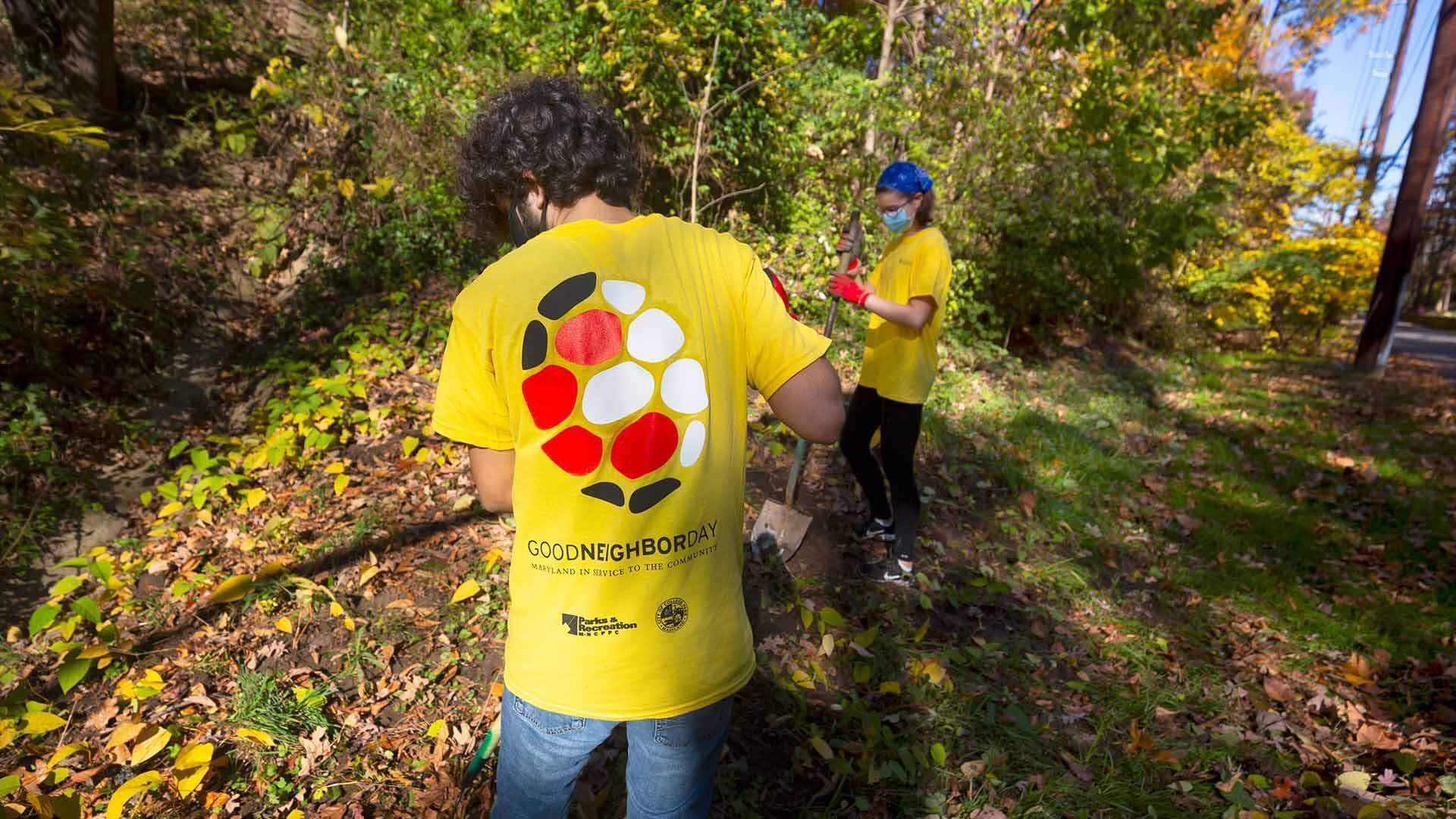Marylanders are more charitable and likelier to volunteer than the average American, but those proactive social efforts aren’t creating stronger ties with their neighbors, according to new University of Maryland research.
The “Maryland Civic Health Report: A Look at Civic Engagement in Maryland and the U.S.,” released today by the Do Good Institute and Civic Innovation Center in UMD’s School of Public Policy, explores how civic indicators like volunteering and voting in local elections have changed from the mid-2000s to the mid-2010s.
Maryland ranks in the top half of all states for each of four service measures (volunteering, giving to charity, working with neighbors, and attending public meetings where current affairs are discussed), and its overall participation rate is higher than the national average. State residents also rank fifth in participating in school groups and neighborhood and community associations.
But Maryland fell from 25th to 43rd in that timeframe for frequently exchanging favors with neighbors, and ranks 44th in residents feeling that they can trust most or all of their neighbors. The state also ranks 44th in the percentage of adults who vote at least sometimes in local elections.
Researchers say these numbers show that while many Marylanders are active association participants and volunteers, their participation lags in activities that promote neighborliness, resulting in struggles to form relationships that would strengthen social cohesion in diverse communities.
“Civic life in Maryland has changed in subtle but distinctive ways since the early to mid-2000s, as it has throughout America,” said Nathan Dietz, senior researcher for the Do Good Institute. “This report gives us an opportunity to update and extend previous research about the way Marylanders engage in civic activities. More importantly, it advances possible explanations for why the national volunteer and giving rates declined slowly but steadily over this time period.”
Other findings include:
- Maryland generally ranks in the top 25 on electoral and non-electoral indicators of political action, including voting and registration in congressional and presidential elections, contacting an elected official, and buying or boycotting a product or service because of the political stances of the producer)
- The percentage of adults who talked about politics with family and friends a few times a week or more often declined significantly in the U.S. and in 33 states, including Maryland. Maryland’s rank fell from 3rd in 2008-10 to 15th in 2011 and 2013.
- When it comes to education, almost all (86.6%) Maryland adults say that they have at least “some” confidence in public schools.
“Civic health is an indicator of how effectively a community solves public problems, and this report is an important window into understanding the challenges and opportunities facing Maryland communities," said Paul Brown, director of the Civic Innovation Center.
The report used U.S. Census Bureau research and data collected from the Current Population Survey Supplement on Volunteering (Volunteer Supplement). From 2002-15, the CPS Volunteer Supplement collected national statistics on volunteering through or for an organization and, in 2008, began to collect data on giving to charity.

